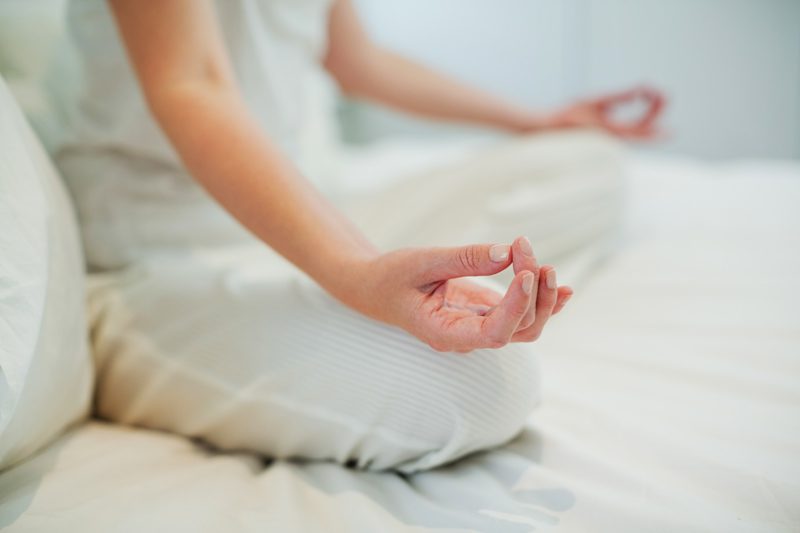For many of us, the notion of taking some time to do nothing sounds absurd.
Our days are as full as they can possibly be. We have places to be (and maybe we need to take our kids to places they need to be, too). We have things to do—jobs to do, workouts to fit in, dinner to make, laundry to fold, and so much more. And we have a variety of things (some of which are meant to be relaxing but somehow are not) to keep up with.
After all, you really don’t want to be the only one in your social group not to have seen the big game or the latest episode of the hottest show or the newest blockbuster movie. Heck, we can barely schedule sufficient sleep, let alone time to do nothing at all.
If that sounds like your life, you may be skeptical of the practice of mindfulness. You may have a vague notion of what it involves—something about sitting still and focusing on your breathing—and based on that notion you may have decided it is not for you and your busy schedule.
But if you don’t mind, we would like to take a few minutes to discuss the benefits of mindfulness, particularly for people who are in recovery from a substance use disorder. A better understanding might have you changing your mind about mindfulness.
Mindfulness 101 – Goals and Ideas
We have noted that many people have the idea that mindfulness practice involves doing “nothing.” But of course, that is not entirely accurate. No matter what we are doing, we are always doing something, right? And that is certainly true of practicing mindfulness. But what does this “something” actually involve?
Mindfulness is all about connecting with the present moment. The Greater Good Science Center at UC Berkeley puts it like this: Mindfulness means maintaining a moment-by-moment awareness of our thoughts, feelings, bodily sensations, and surrounding environment, through a gentle, nurturing lens…When we practice mindfulness, our thoughts tune into what we’re sensing in the present moment rather than rehashing the past or imagining the future.
And why is it important to focus on the present? Well, it turns out that many of us spend an awful lot of time and energy either rehashing the past (usually focusing on our mistakes or regrets) or worrying about the future. Not only can this cause us to miss what is happening in our lives at this present moment, it can also heighten feelings of anxiety and/or depression. This can have a negative impact on our overall mental health, and for a person in recovery, it can increase the likelihood of relapse due to the temptation to use drugs or alcohol to mute the bad feelings we are experiencing.
Mindfulness encourages us to be less harsh with ourselves. As the Greater Good Science Center notes:
Mindfulness also involves acceptance, meaning that we pay attention to our thoughts and feelings without judging them—without believing, for instance, that there’s a “right” or “wrong” way to think or feel in a given moment.
This idea of acceptance can be a great support to our ongoing sobriety because we spend less time judging ourselves and more time experiencing each moment.
Mindfulness 202 – Learning the Skills
Okay, you might be thinking, those sound like worthy goals. But how do you actually, you know, do mindfulness? Surely there is more to it than just sitting still and breathing, right?
Well, yes and no.
The actual practice of mindfulness does indeed involve sitting comfortably with your eyes closed and paying attention to the natural rhythms of your breath. You may be imagining a monk who sits like this for long periods of time, but happily, your daily mindfulness practice need not be terribly long. Many people find just 10 or so minutes a day to be quite helpful. Eventually, the habit of paying attention to the present moment carries over from the exercise to everyday life, leading to better focus on the present and an easing of feelings of anxiety, depression, and the like.
A number of ideas and techniques can deepen your mindfulness practice and provide additional coping mechanisms for the challenges of life. For example, you might be encouraged to visualize your body filling with sunlight as a way to remind yourself not to get caught up in runaway thinking. It might sound silly at first, but these sorts of ideas can be added to your recovery toolkit to help you keep cravings and negative thought patterns at bay. Life will, of course, continue to throw challenges your way, but your mindfulness practice may help you handle those challenges more calmly and effectively.
Getting started is easy, whether you find a class in your community or turn to online resources (many of which are completely free or offer a selection of free content). That is one of the great things about mindfulness: the barriers to entry are low, and the potential upsides are high.
So even if you are skeptical of the benefits or just convinced you can never set aside 10 minutes a day in your schedule for sitting still, we encourage you to give mindfulness a chance. If you come at it with an open mind, you may find that your skepticism turns to enthusiasm more rapidly than you anticipated.
We Are Mindful of Your Specific Needs
Each individual has a different experience and different needs when it comes to addressing a substance use disorder. At French Creek Recovery Center, we take the time to truly listen to you and to design a plan of treatment that takes into account your specific situation—including any co-occurring mental health disorders that may be contributing to your struggles with drugs or alcohol. If you need help, keep us in mind.

